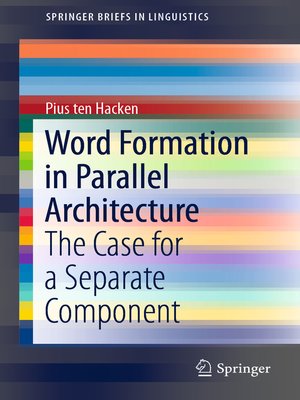Word Formation in Parallel Architecture
ebook ∣ The Case for a Separate Component · SpringerBriefs in Linguistics
By Pius ten Hacken

Sign up to save your library
With an OverDrive account, you can save your favorite libraries for at-a-glance information about availability. Find out more about OverDrive accounts.
Find this title in Libby, the library reading app by OverDrive.



Search for a digital library with this title
Title found at these libraries:
| Library Name | Distance |
|---|---|
| Loading... |
The position of morphology in the architecture of grammar has always been an issue of debate in generative linguistics. Since Chomsky (1970), thisquestion has been framed in terms of the Lexicalist Hypothesis. Compared to Chomsky's architectures, Jackendoff's Parallel Architecture places phonetic and conceptual structures at the same level as syntactic structure, i.e. connected by bidirectional linking rules rather than interpretation rules. One of the consequences is that PA does not formally distinguish lexicon entries from rules of grammar. This changes the setting for the question of the autonomy of morphology, because the Lexicalist Hypothesis depends on this distinction.







